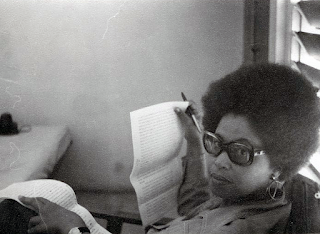'Unsettling the Coloniality of Being': wrap-up
Tuesday 21st March | 17:30 - 19:00 | The Pack Horse This session will be our last session on Wynter's expansive essay 'Unsettling the Coloniality of Being/Power/Truth/Freedom: Towards the Human, After Man, Its Overrepresentation - An Argument' . Our discussion this month will centre on the final two sections of the text (pp. 303-331) but will also be an opportunity to discuss and reflect on the essay as a whole and its place in Wynter's wider body of work. In these last two sections, Wynter continues her dissection of the colonial epistemic order that has sustained our current conception of the human as 'Man'. Drawing on Aimé Césaire and Frantz Fanon, she also begins to theorise what she calls a ‘Science of the Word’ as a potential catalyst for a new epistemic leap in our understanding of what it means to be human. In our discussion we will be exploring what she means by this, and its implications. As a companion piece we will also be looking at Césaire’s short...


